Table of Contents
Key Takeaways
- B-Vitamins and multivitamins are crucial for brain health and neurotransmitter synthesis.
- Acetylcholine’s role in ADHD can be supported with nootropics like ALCAR and CDP-Choline.
- Nootropics like Ashwagandha and Bacopa Monnieri help repair damaged neuroreceptors in ADHD.
- Noopept enhances cognition, memory, and provides neuroprotection.
- Combining specific nootropics with essential vitamins can optimize brain function for managing ADHD symptoms.
Depending on the severity of your ADHD symptoms, you may be able to use nootropics as an alternative to prescription stimulants like Adderall, Ritalin, Vyvanse and their variations.
I experimented for a year by using nootropics in place of the 20 mg of Ritalin I had been using 3-times a day for several years. And for the most part, I was successful in taming my Adult ADD symptoms.
Adult ADD Nootropic Stack
The ADD/ADHD stack I use includes:
- Mind Lab Pro
- Performance Lab® Energy – twice per day
- CDP-Choline – twice per day
- ALCAR – 750 mg 1-time per day
- L-Tyrosine – 500 mg 3-times per day
- Sulbutiamine – 400 mg twice per day
- Aniracetam – 750 mg twice per day
- Vinpocetine – 10 mg 3-times per day
- Performance Lab® Omega-3 – 3 GelCaps per day
- 1 tablespoon unrefined Coconut Oil or MCT Oil– 3-times per day
- Performance Lab® NutriGenesis Multi – 4 caps per day
During my one-year stimulant holiday, the ingredients in Mind Lab Pro along with L-Tyrosine, CDP-Choline, and ALCAR (included in Performance Lab Energy) kept my dopamine, norepinephrine, and acetylcholine levels high enough to maintain focus, motivation and improve my memory. Vinpocetine kept my brain blood flow at optimal levels. And Aniracetam and Sulbutiamine improved my mood.
But after a year I decided to go back to using 20 mg of Ritalin twice per day. Because my workload had me writing 10 hours per day. And maintaining working relationships with 2 or 3 clients at once.
By adding Ritalin back to my stack I was able to reduce the time it would take to complete a project from 3 days to 1 ½ days. Proof to me that my overall brain health couldn’t make it with nootropics alone.
The beauty of continuing to use L-Tyrosine, CDP-Choline, and ALCAR even after I started using Ritalin again was that I avoided the stimulant “crash” that is so common late afternoon when using stimulants. And I was able to reduce the original 20 mg Ritalin 3-times per day down to only twice per day.
And I have not experienced building up tolerance to Ritalin that is so common when using stimulants to treat ADD or ADHD.
Your situation may be different, or ADHD symptoms not as severe. Only you can decide if nootropics can replace ADHD meds. The stack I describe on this page is designed to be used with or without stimulant meds.
Whether you use this stack with meds or without, you’ll need to discover for yourself what dosages of each nootropic are ideal for you. Because the amounts that work for me may not work as well for you. You may need less NALT and/or ALCAR.
Experimenting is the key to success with nootropics. And knowing as much as you can about what’s going on in your brain that needs to be fixed. But after many years of recommending this ADHD nootropic stack to people just like us around the world, we know this works.
The pre-made nootropic stacks mentioned in this post include:
Prescription “Smart Drugs” vs. Nootropics for ADHD
This post is in response to many emails and questions I’ve been getting about how to treat Attention Deficit/Hyperactivity Disorder (ADHD) or Attention Deficit Disorder (ADD) with nootropics.
So if you are dealing with ADHD, hopefully this post will help. Especially if you are using stimulants like Ritalin, Adderall, Vyvanse, Focalin, or any of the other stimulant prescribed for ADD/ADHD. Or you are trying to deal with ADHD naturally by avoiding prescription stimulants.
This information can also help if you are a student or executive who uses prescription “smart drugs” like Adderall or Modafinil to boost productivity.
Here we’ll dig into the causes of ADHD or ADD in your brain. Symptoms associated with ADHD. And what you can do using nootropics, or nootropics stacked with stimulants to correct ADHD symptoms.
I’ll also include ways to potentiate the effectiveness of prescription stimulants with nootropics so they work better.
If you’ve never ‘officially’ been diagnosed with ADHD, but some of this resonates with you, you could be ADHD or ADD. And this may point you to some answers.
I’ve been ADD all my life. (ADD is ADHD without the hyperactivity). But it wasn’t until about 16 years ago, that a very wise psychiatrist identified what was going on. And why I had been struggling with focus and other problems with behavior. That no amount of self-help books on focus and management could ever correct.
Ritalin turned the lights on for me. And completely changed my life for the better. This was the seed that sprouted my interest in neuroscience and nootropics. And ultimately launching Nootropics Expert®
What is ADHD & ADD?
Attention Deficit/Hyperactivity Disorder (ADHD) or Attention Deficit Disorder (ADD) are associated with attention and executive function in your brain.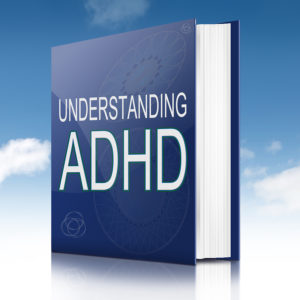
Your prefrontal cortex directs behavior, thought and feeling which are all associated with working memory. This fundamental cognitive function is what most “healthy” people take for granted, are what make up executive function.
This executive function and working memory give you the ability to:
- Regulate your attention
- Inhibit inappropriate behavior and thought
- Monitor your actions
- Plan and organize your future
If you can’t focus on the task at hand, blurt things out at inappropriate times, have little control over your emotions or actions, and can’t seem to stick to that careful set of goals you wrote down, you may be ADHD.
The Role of Norepinephrine and Dopamine in ADHD
Norepinephrine and dopamine are the primary neurotransmitters involved in ADHD because they play an essential role in attention and thinking.[i]
The “inattentive” type of ADHD is related to issues with the norepinephrine, and the “hyperactive and impulsive” type of ADHD is linked to dopamine dysfunction.
These two neurotransmitters work in concert to maintain alertness, increase focus, sustain thought, effort, and motivation. The only difference between the two is the presence of a hydroxyl group. And dopamine is the precursor to norepinephrine synthesis in your brain.[ii]
Much of what we read about ADHD focuses on dopamine’s function in your brain. But norepinephrine (NE) plays a critical role in activating your reaction to events. And how you respond to the event.[iii] NE is essential for collecting information coming in through your senses. And then modulating your brain’s response.
Any disruption in this NE system can result in ADHD, Post Traumatic Stress Disorder (PTSD), sleep disorders and more.[iv]
For example, NE working with postsynaptic α2-adrenoceptors (α2-AR) in your brain play an essential role in helping you focus and eliminate distractions when you’re paying attention to something.[v]
This is just one example of what goes wrong with ADHD brain function. My point in bringing this all up is not to overwhelm you with neuroscience.
But to make clear that simply suggesting too much or too little of a single neurotransmitter like dopamine cannot explain the complexity of ADHD.
So using a nootropic like L-Tyrosine to amp up dopamine in your brain is often not enough to take care of ADHD symptoms. Or using Adderall with someone who has a problem with alpha2-receptor binding with norepinephrine may not get much benefit.
This is the reason that experimenting with various stimulants and/or nootropics is often the only way to find a long-term solution to keeping ADHD under control. And why some respond better to a drug like Ritalin and not as well to Adderall. Or vice versa.[vi]
And recent research shows serotonin and acetylcholine are involved too. Mostly the “hyperactivity” part of ADHD which includes movement, inattention, and impulsivity.[vii]
Smart Drugs Used to Treat ADHD Symptoms
If you are truly and clinically ADHD or ADD, it is unlikely that optimizing your diet, getting plenty of sleep, using nootropics, and exercising regularly will get the symptoms of ADHD under control.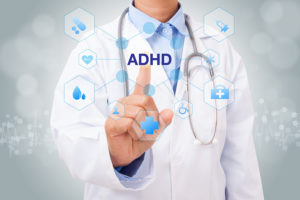
The most severe forms of ADHD often benefit from using prescription medication. Otherwise known as “smart drugs” in some circles, these meds are typically amphetamines or methylphenidate.
The amphetamine-class of ADHD prescription drugs includes Adderall (75% dextroamphetamine salts and 25% levoamphetamine salts), Dextroamphetamine, and Vyvanse (Lisdexamfetamine).
The methylphenidate-class of ADHD medications includes methylphenidate (Ritalin) and its variants like Concerta, and Focalin.
Adderall and Ritalin both work with dopamine and norepinephrine in your brain. But through different mechanisms of action.
Ritalin is a pure uptake inhibitor of dopamine and norepinephrine without any other presynaptic activity.[viii] Adderall on the other hand, has additional presynaptic activity, releasing dopamine and norepinephrine from presynaptic neurons.
The idea for the last 60 years or so, has been if we could boost dopamine and norepinephrine in the brain, ADHD symptoms would go away. As long as we’re taking the medication.
Why Prescription Attention Deficit Hyperactivity Disorder Meds Often Don’t Work
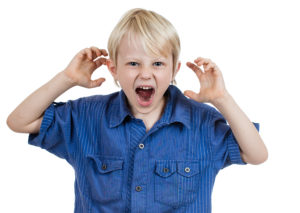 In an ideal world, taking one pill 2 or 3 times a day to treat ADHD would put your life back on track. And help you function like a ‘normal’ person.
In an ideal world, taking one pill 2 or 3 times a day to treat ADHD would put your life back on track. And help you function like a ‘normal’ person.
But real-world results often don’t work out as well as theory. For several reasons. For example, what if there’s not enough dopamine or norepinephrine in your brain in the first place? Then stimulants will not work as well as planned because they haven’t the neurotransmitters in place to work with.
You could also have problems with not enough or damaged neuroreceptors. Natural aging processes can slow blood flow or inhibit the production of neurotransmitters. A lack of acetylcholine could prevent your neurotransmitters from doing what they were designed to do.
This is where nootropics can help save the day in treating the symptoms of ADHD.
Optimizing Dopamine & Norepinephrine
 One of main culprits contributing to ADHD symptoms is a lack of dopamine (DA) and norepinephrine (NE) in your brain. Or your brain is not using the available DA and NE effectively.
One of main culprits contributing to ADHD symptoms is a lack of dopamine (DA) and norepinephrine (NE) in your brain. Or your brain is not using the available DA and NE effectively.
Stimulants like Adderall and Ritalin work to boost levels and use of these two critical neurotransmitters.
Production of dopamine and norepinephrine in your body and brain follows this metabolic pathway:
Phenylalanine → Tyrosine → L-DOPA → Dopamine → Norepinephrine
Dopamine is converted to norepinephrine by the enzyme dopamine β-monooxygenase, with O2 and ascorbic acid (Vitamin C) as cofactors.
Norepinephrine can be further converted into epinephrine by the enzyme phenylethanolamine N-methyltransferase with SAM-e as cofactor.
Nootropics to boost dopamine and norepinephrine include:
- L-Tyrosine – L-Tyrosine is the precursor to the synthesis of dopamine in your brain. L-Tyrosine enhances working memory, executive function, creative flow states, reduces stress, improves mood and is anti-anxiety.Suggested dosage of L-Tyrosine or NALT for ADHD is 350- 500 mg twice per day. I successfully stack 500 mg of NALT or L-Tyrosine 3-times per day. Once each time I dose with Ritalin, and a last dose mid-afternoon to prevent a stimulant crash later in the day.
- Mucuna Pruriens (L-Dopa) – Mucuna works as an antioxidant and heavy metal chelator, improves memory & cognition, reduces depression and boosts libido.L-Dopa is also the direct precursor to dopamine. Suggested dosage of Mucuna Pruriens is 250 – 500 mg per day. But if you’re just starting out with nootropics, I highly recommend using L-Tyrosine or NALT instead of Mucuna Pruriens. Because Mucuna can be more difficult to dose since it directly stimulates the production of dopamine. L-Tyrosine and NALT are more ‘forgiving’ when it comes to dosage.
- N-Acetyl L-Cysteine (NAC) – NAC is an amino acid that regulates the amount of glutamate and dopamine in your brain.NAC can be used to address the symptoms of ADHD. And may even help eliminate some of the negative side effects associated with prescription ADHD stimulants. Suggested dosage of NAC is 600 mg 3-times per day.
- Phosphatidylserine (PS) – PS can help improve alertness, attention, cognition, memory, recall and mood, and lower anxiety. All issues associated with ADHD.Phosphatidylserine is a phospholipid component of the membrane encasing every one of your brain cells. PS helps maintain the fluidity and permeability of brain cells. Improving the flow of dopamine and acetylcholine. Suggested dosage of PS is 100 mg 3-times per day.
- Pine Bark Extract – Pine Bark extract helps prevent decreases in dopamine and norepinephrine. And the glutathione (GSH) and GSH-disulphide reductase (GSSG-R) ratio. Neurotransmitter problems which contribute to hyperactivity in ADHD.Pine Bark extract also helps boost blood flow in the brain by increasing nitric oxide which helps dilate blood vessels. And it helps reduce oxidative stress, membrane damage, DNA damage, inflammation, and glycation.I’ve found one of the most potent forms of Pine Bark extract comes in both Mind Lab Pro® and Performance Lab® Mind.
A word of caution here in boosting the catecholamines dopamine and norepinephrine. Too much of either is not a good thing. In fact, excess levels of either will throw your neurotransmitter levels out of balance. And can cause anxiety, insomnia and panic attacks.
Taming Hyperactivity with Nootropic Supplements
The “H” in ADHD stands for hyperactivity. Boosting levels of dopamine and norepinephrine can help balance out hyperactivity. And help calm and focus your mind. But often simply boosting or balancing these neurotransmitters is not enough.
Recent studies show that serotonin and dopamine interaction also play a role in ADHD.[ix] Serotonin is involved in the uptake, synthesis and breakdown of dopamine in your brain. Problems with serotonin seem to contribute to behavior and impulse control.
Much more research needs to be done in this area of ADHD. But we can help control and balance serotonin with nootropics.
- 5-HTP – This amino acid is synthesized from the amino acid tryptophan. And 5-HTP is the immediate precursor to serotonin in your brain.5-HTP can help relieve anxiety and depression, fibromyalgia, insomnia, migraines and likely the hyperactivity, depression and anxiety associated with ADHD. Suggested dosage of 5-HTP is 50 mg up to 3-times per day. Please see my dosage notes and warnings before you try supplementing with 5-HTP.
- Ginseng – Ginseng helps calm anxiety, and boost attention, concentration and memory. Ginseng provides neuro-protective effects on the dopaminergic-pathway which can help with ADHD. And ginseng is a serotonin and norepinephrine reuptake inhibitor (SNRI).Suggested dosage of Ginseng is 100 – 400 mg per day.
- L-Theanine – L-Theanine commonly found in green tea helps boost alpha and theta brain waves, is anti-anxiety, boosts cognition and memory and reduces insomnia.L-Theanine also helps boost GABA, serotonin and dopamine levels in your brain. Suggested dosage of L-Theanine is 150 mg 2 – 3-times per day.
- Rhodiola Rosea – Rhodiola Rosea helps improve alertness, energy, memory and mood, is anti-anxiety and antidepressant, reduces fatigue and boosts memory and concentration.Rhodiola influences serotonin and norepinephrine levels in your brain. Suggested dosage of Rhodiola Rosea extract is 150 – 200 mg per day.
- Saffron – Saffron acts as a dopamine and norepinephrine reuptake inhibitor. Similar to how Ritalin works. A randomized double-blind study was conducted with 54 children 6-17 years old who were given 20 – 30 mg methylphenidate or 20 – 30 mg Saffron per day for 6 weeks. At the end of the study researchers concluded, “Short-term therapy with a saffron capsule showed the same efficacy compared with methylphenidate.”Suggested dosage of Saffron is 30 mg per day.
- Vitamin B6 (Pyridoxine) – Vitamin B6 helps your brain make serotonin, norepinephrine and melatonin. Suggested dosage of B6 is up to 100 mg per day.
- Vitamin B9 (Folate) – Folate (NOT folic acid) as a nootropic helps your brain make dopamine, epinephrine, norepinephrine and serotonin. Suggested dosage of Folate is 400 mcg per day.
- Vitamin B12 (methylcobalamin) – is a cofactor in the synthesis of neurotransmitters acetylcholine, dopamine, GABA, norepinephrine, and serotonin. Suggest dosage of B12 is 100 mcg per day.
B-Vitamins are Critical in Controlling ADHD
Take note that several of the B-Vitamin group are involved in the production of the neurotransmitters involved in ADHD. I recommend adding a good B-Vitamin Complex that include methylfolate (not folic acid) and methylcobalamin (not cyanocobalamin) to your stack. Both in a pure nootropic stack as well as when using any of the ADHD prescription stimulants.
But it’s not only the B-Vitamins that are required for a healthy, fully functioning brain. We also need each of the 13 vitamins and 13 minerals needed for everything from blood flow, neurotransmitter synthesis and release, brain signaling, and neuroprotection.
I’ve found the easiest way to make sure my ADD brain gets all the vitamins and minerals it needs every day is to also use a multivitamin/mineral supplement.
The best I’ve found so far is the multivitamin called Performance Lab® NutriGenesis Multi. It’s better than the “raw-food” multi I was using for years. And makes a difference I can actually feel.
But please note that this multi is in addition to a B-Vitamin Complex because the ADHD brain needs more of these critical nutrients than what is normally in any good multivitamin.
The Role of Acetylcholine in ADHD
Researchers at Vanderbilt University Medical Center discovered that there are three types of ADHD.
We’ve already covered the “inattentive” type that is related to issues with the norepinephrine transporter gene. And the link to the dopamine transporter gene in the “hyperactive and impulsive” type.
But the research team now report that a variation in the choline transporter gene is associated with a “combined” type of ADHD. Symptoms include both inattention and hyperactivity/impulsivity.
Choline is required to synthesize acetylcholine (ACh) which is needed for memory, motor-control, focus, learning, concentration, and cognition.
If you have the “combined” type of ADHD it’s likely due to a mutation in this choline transporter gene variation.
Nootropics to boost acetylcholine include:
- ALCAR (Acetyl-L-Carnitine) – ALCAR donates a methyl group in the presence of Coenzyme-A for the synthesis of acetylcholine. And it’s also a shuttle transport for fatty acids through brain cell membranes. It shuttles fatty acids into mitochondria for ATP synthesis, and shuttles toxic byproducts out.
Research from the Linus Pauling Institute shows ALCAR will restore mitochondrial function, replenish age-related changes to mitochondrial structure, and helps replenish acetylcholine levels to your brain and body.
And other studies show that ALCAR stimulates nerve growth factor. Helping support survival and growth of neurons. Which is particularly important for the ADHD brain and especially when using prescription stimulants that may be tough on neurons.
- Alpha Lipoic Acid (R-LA) – Alpha Lipoic Acid increases acetylcholine production by activation of choline acetyltransferase and increases glucose uptake. This process supplies more Acetyl-CoA for the production of acetylcholine.
Alpha Lipoic Acid enhances insulin-stimulated glucose transport and metabolism for better brain cell performance. And R-Lipoic Acid provides strong antioxidant support because it helps regenerate and recycle existing antioxidants in your brain including Vitamins C & E, glutathione, and CoQ10.
I’ve since switched the ALCAR supplement in my ADD stack to Performance Lab® Energy because this pre-formulated energy stack contains my preferred dose of ALCAR. But note that I also take another 500 mg of ALCAR with L-Tyrosine late afternoon to prevent a stimulant crash.
Performance Lab® Energy also contains Alpha Lipoic Acid and ALCAR which helps my ADD brain produce acetylcholine.
- CDP-Choline (Citicoline) – Citicoline helps synthesize phosphatidylcholine (PC), a major phospholipid found in brain cell membranes. And provides choline for the synthesis of acetylcholine while providing antioxidant activity.
The CDP-Choline (Citicoline) in my ADD stack is supplied by Mind Lab Pro® which is the base of my nootropic stack.
But a suitable alternative to MLP is Performance Lab® Mind which contains the branded form of citicoline called Cognizin®.
Performance Lab® Mind and Mind Lab Pro® also contain L-Tyrosine, Phosphatidylserine (PS), and Maritime Pine Bark extract.
Repairing Neuroreceptors Needed to Control ADHD
One of the issues with neurotransmitters and ADHD are damaged or non-existent receptors. Dopamine, norepinephrine and serotonin have less receptors to bind to for cognition and mood control.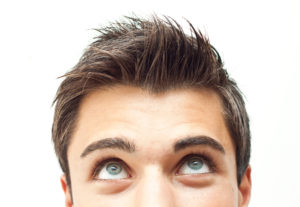
Once again, nootropics come to the rescue in helping control ADHD. You can add one of these nootropics to your stack to help boost neuron and receptor health.
- Ashwagandha – This adaptogen, Ashwagandha helps reduce anxiety and depression. And helps reconstruct axons, dendrites and synapses involved in neurotransmitter signaling in your brain.Suggested dosage of Ashwagandha extract is 250 – 500 mg per day.
- Bacopa Monnieri – Bacopa helps boost memory and cognition, improves mood, and reduces stress. This adaptogen affects brain levels of acetylcholine needed for neurotransmitter signaling.And the two active components of Bacopa Monnieri called bacosides A and B not only improves signaling of electrical impulses between neurons in your brain. Bacosides also help rebuild damaged neurons. Suggested dosage of Bacopa is up to 450 mg per day.
- Lion’s Mane – Lion’s Mane Mushroom is known for stimulating Nerve Growth Factor, improving cognition and memory, and relieving depression.Lion’s Mane stimulates the repair and creation of neurons in your brain. Neurons needed for dopamine and norepinephrine to control ADHD. Suggested dosage of Lion’s Mane Mushroom starts at 500 mg per day. Note: that there’s an effective 500 mg dose of Lion’s Mane full-spectrum fruiting body in each dose of Mind Lab Pro®
- Noopept – Noopept helps boost cognition, memory, learning, perception, logical thinking and mood. Noopept increases Nerve Growth Factor, and Brain-Derived Neurotrophic Factor (BDNF) critical for neuroplasticity and Long-Term Potentiation critical for long-term memory.Noopept also prevents the release of excess glutamate in your brain. Providing potent neuroprotection for neurons and reducing damage. Suggested dosage of Noopept is 10 – 30 mg per day.
Please note that I haven’t linked through to supporting clinical studies for each of the nootropics I listed above. But you can click through to my full review of each nootropic for extensive research supporting each supplement.
Nootropics for Kids
ADHD and ADD is most often diagnosed in children. The latest statistics (2011) from the CDC in the USA shows about 11% of children 4 – 17 years of age (6.4 million) have been diagnosed ADHD.[x] And that’s just for the USA.
Although ADHD is usually first diagnosed in children, it often lasts into adulthood. I sometime wonder how my life would have been different if I had been declared ADD when I was a kid.
But it wasn’t until the late 1960’s that the American Psychiatric Association formally recognized ADHD as a mental health disorder. I wasn’t declared Adult ADD until much later.
The thing is many parents are wary about putting their children on powerful, prescription ADHD meds. Kids’ brains continue to develop until your early 20’s. So is it a problem messing with brain chemistry at such a young age? Only time will tell and if the benefits outweigh any potential risk.
Hence the reason why parents are looking for ‘natural’ alternatives like nootropics to treat ADHD in children. But are nootropic supplements any safer than prescription stimulants?
Common sense tells me that using L-Tyrosine could be safer than Ritalin for boosting dopamine. And Rhodiola Rosea could be safer than stimulants or antidepressants for taming hyperactivity.
But many children with ADHD, natural supplements may not be enough. I’m not a doctor, and don’t even play one on TV. I’m an ordinary biohacker who has learned as much as I can to help myself. And fix my own cognitive performance issues. Including Adult ADD.
So I highly recommend you find and work with an open-minded psychiatrist with your child. You may be pleasantly surprised to find you may be able to reduce or eliminate prescription ADHD meds altogether to enhance cognitive functions. And maybe not. But the long-term health of your child could be worth the time investment to find out.
In Summary
I’ve been wanting to write this post since I started Nootropics Expert®. If you are ADHD or ADD, I hope you found this useful. And I’d appreciate your feedback, and share your experience with treating ADHD with nootropics in the comments section of this post below.
Please share this post with anyone you think would benefit. Including discussions about nootropics for ADHD on reddit or Longecity.
One final note. Neurotransmitter balance is key to taming ADHD. I strongly caution you to take it slow if you’re just starting out with nootropics. Carefully read each of the extended articles in the List of Nootropics you are considering trying.
You need to be careful about side effects, prescription drug interactions, dosages and how your body reacts to each supplement to ensure healthy brain function.
But I’m confident that with careful planning and a long-term commitment, your cognitive enhancement will be just as successful as I have been in living and thriving with my Adult ADD.


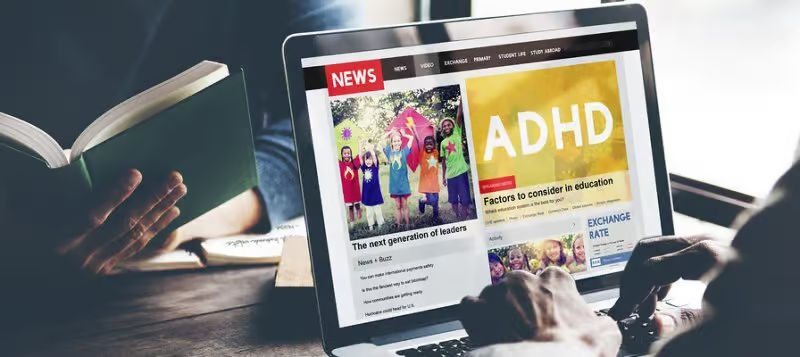





Join The Discussion - 829 comments
Kim
October 25, 2021
My son was diagnosed with non hyper ADD several years ago. He’s now 17 and continues to struggle in school with focusing. We’ve tried a few prescription medicines over the years but he usually gives up after a month or so and typically does not take them on the weekend. He dislikes them enough that he talked the doctor into lowering his adder all down to 15mg once per day, much lower than normal for his weight. But at least there aren’t any tics and his appetite is a bit better at this dose, it just doesn’t help as much with focusing. I told him about nootropics and he’s interested in trying them. I’m just trying to figure out the best all in one or stack out there. Do you have any recommendations?
David Tomen
October 26, 2021
Kim, there is no “all-on-one” stack of nootropics for ADD. If you read the above article carefully you’ll understand why.
Because if you are going to use nootropics for ADD the stack needs to be used 2 or 3-times per day to be effective for the entire day. And it does work. I know because I tried it for an entire year while taking a Ritalin holiday.
Angelina
October 22, 2021
Hey David,
So basically I am diagnosed bi polar and adhd and anxiety. I am well managed. I have tried nootropic stacks but I have to watch how how serotonin and and all that I am putting in.
I am wanting to Tackle this with natural stuff.
So I am interested in the yellow box stack up the top.
But I do know that bi polar is because of too much glutamate.
I take 100mg of lamictal at night with clonazepam. See the lamictal blocks too much glutamate and then the clonazepam reduces the anxiety. But then the adhd comes into play which is full on —
I take dexamfetamine during the day — I use to take it with L-theanine sometimes.
I wondering what stack I could take for night is time — I’ve taken 5htp and L-tryptophan and L Theanine and GABA.
But I want to really boost this adhd situation -/ and curb this craving for cigarettes which I quit, it’s not the cigarettes I’m after I know it’s the nicotine — so I’m inclined to want more coffee while I’m on the dexamfetamine during the day – gathering it’s all this dopamine thing.
I want love to get to a nootropic balance and get rid of the other stuff like the lamictal and the clonazepam.
even with the dexamfetamine didn’t feel like I’m functioning full speed like I would like too. And I have done breaks of the dexamfetamine as well. But adhd can slow anything to do with business and work Down. So it’s like I’ve got a scatter brain sometimes —
Would love to take something that’s going to tackle to inattentive as well as hyper but I’m more Inattentive.
So I’m gathering if I ween of
These meds which I have with the lamictal which is a mood stabiliser for the bi polar perhaps there’s a stack that can rejuvenate my Brain and then take something to balance it all out
[edited for length]
David Tomen
October 27, 2021
Angelina, the nootropic stack you need for ADHD is what is described in the article above. Dosages are included in the yellow box at the top as well as each individual supplement review.
Glutamate needs to be balanced with L-Glutamine and GABA. You can read more about that here: https://nootropicsexpert.com/l-glutamine/. Some find success stabilizing glutamate by supplementing with L-Glutamine during the day and PharmaGABA before bed.
And how to tackle anxiety here: https://nootropicsexpert.com/best-nootropics-for-anxiety/
If you need more help I suggest scheduling a consultation with me. Here is a link to my calendar: https://nootropicsexpert.com/personal-consultations/
JOSEF
September 26, 2021
Hello again David! I’m grateful you suggested blood work!!
I got my result back for TH, T3 and T4. And…I am a bit perplexed. And cautious.
P-Tyreotropin (TSH) 3.3 mIE/L (reference: 0.4-4.0)
P-Tyroxin, free (fT4) 23 pmol/L (reference: 10-22)
P-Trijodtyr free (fT3) 6.2 pmol/L (reference: 3.3-6.0)
Given how often I’ve felt general cold, especially in my hands and not being overweight etc, I thought it might have shown indication on HYPOthyroidism. Not Hyper!
One mistake I did was I introduced L Tyrosine 500mg the morning before bloodwork (around 24h lapse).
And same with L Theanin 200mg, 2x, spread over the same day.
These two were the only new additions prior to taking blood work.
The doctor who commented suggested that I should follow up with a new test in 2-3 months. Definitely will do so. I might do it sooner just in case.
Apart from that, I’m not sure how to approach my ADD stack now. I settled on CDP-Choline, ALCAR, L-Tyrosine, L-Theanine, NAC + KSM-66 and lots of DHA. But some of those might effect the thyroid. And in all honesty I have not exactly noticed any particular changes after trying them these past days… I know Ashwaganda might take time so I will let it build slowly. But I’ll discontinue L Tyrosine and L Theanin.
One seems to have immediate effect though!
Usually I get headache after Vyvanse goes out, but I haven’t felt that. I believe this is the CDP-Choline you wrote about. It will be more evident this week when I pick it up again (I take a break from Vyvanse during weekend). So my plan is to stick with that one at least!
Thank you!
David Tomen
September 28, 2021
Josef, L-Tyrosine is used along with Iodine to make thyroid hormone. So that may have messed with your labs. Biotin will also mess with the results.
Better to stop using anything containing biotin or Tyrosine a couple days prior to getting a Thyroid panel done.
And I would avoid Ashwagandha if you have thyroid issues because those two do not like each other. See my Ashwagandha review where I mention that.
JOSEF
September 30, 2021
Got it! I will avoid repeating the same mistake next blood work!
Also it’s unfortunate about KSM-66 since it seems to have relaxing effect. Especially few hours before bed. Think I can introduce l theanine again instead, or will that be just as stimulating for thyroid?
And I bought few other stuffs for my ADD after further reading on this site. Could you clarify few questions?
Bought
1) B-Vitamin Complex. Among other things it includes:
B6/P5P – pyridoxal 5′-phosphate
B9/Quatrefolic® – (6S)-5-methyltetrahydrofolate (Quatrefolic®)
B12/methylcobalamin
It seems quality!
My question when should I take it? And what dosage do you believe is best? Given your resources I think twice the recommended? Just want double-confirmation.
Here is product:
(scroll down and click “NÄRINGSINNEHÅLL” and you will see dosage for 1 capsule).
Holistic Mega B metylerad
2) Magnesiumbisglycinat from the site BULK.
Was unsure if this is chelated or not. Still bought it because it was so cheap…
My understanding is that Mg bond to glycine is chelated? But if not, is it still good?
Was planning take 3 tablets/~300mg before bed-time!
Magnesium Bisglycinate
3) Phospatidyl serine (PS), also from BULK. This seem to have “low” dosages with 50 mg. Not exactly sure how many tablets to take and when.
Phosphatidyl Serine Tablets
Thank you as always for your wonderful help!
Josef
David Tomen
October 2, 2021
Josef, the B-Complex looks like it has the right dosages and form. That is a chelated form of magnesium. And you need 2 tablets of the PS supplement 3-times per day.
JOSEF
October 3, 2021
Thank you David! I will get back to you after a month of trial and errors!
Best regards,
Josef
David Tomen
October 3, 2021
Good luck Josef.
Yousef
September 23, 2021
Hi David I wanted your opinion on using this stack with amphetamines. I use dexedrine and antidepressant daily.
David Tomen
September 24, 2021
Yousef, there is nothing in this stack that is directly contraindicated with amphetamines or SSRIs.
Brian B
September 23, 2021
I take 40mg of vyvanse and 20mg of lexapro. I just started nursing school and I noticed taking vyvanse and lexapro by themselves I have a lot of “brain fog”. My biggest problems are retaining information and staying focused on my professors. What nootropics do you think would work best with my meds? Thank you
David Tomen
September 24, 2021
Brian, Vyvanse is contraindicated with Lexapro: https://www.drugs.com/drug-interactions/amphetamine-with-escitalopram-2543-0-1013-0.html
There isn’t a nootropic stack that will solve this problem as long as you are using these two drugs. The nootropic stack detailed in the above article is made to support the use of stimulants like Vyvanse. But not while using an SSRI at the same time.
I’m not a doctor and do not play one on TV Brian so please take my advice for what it’s worth. But I would question the wisdom of whoever prescribed these two drugs to be used concurrently.
Brian beattie
September 25, 2021
I appreciate it I questioned it when I started and haven’t felt like I should take them together. Is there something I can supplement for the lexapro I really want to keep it bare minimum to taking meds and the stack you provided with the vyvanse I tried and it has worked so I don’t want the lexapro to mess it up.
David Tomen
September 26, 2021
Brian, there is no direct natural comparison to Lexapro. This drug directly affects the uptake of serotonin. You can safely increase serotonin in your brain by using 500 – 1,000 mg of L-Tryptophan before bed.
The only other option are supplements like L-Theanine which works kinda’ like Lexapro on GABA, serotonin and dopamine. But it not nearly as powerful.
Calio
September 18, 2021
Hello David,
im starting Strattera tomorrow and want to know can i combine it with modafinil?
David Tomen
September 20, 2021
Calio, Strattera is a selective norepinephrine reuptake inhibitor (SNRI) and Modafinil binds to the dopamine transporter. And acts as a dopamine reuptake inhibitor. While they are not exactly the same in their mechanism of action they both act on the catecholamines in your brain and the combination may not work out well for you. I personally would not attempt it.
JOSEF
September 17, 2021
Greetings from Sweden, David!
You seem very versed in both subjects (ADD and Nootropics)!
I’m hoping you could provide some guidance because I’m really struggling here…
I am 30 years old and struggle with ADD / inattentiveness.
For the past few months I’ve been prescribed Elvanse/Vyanse (50 and 70 mg).
The noticable effect have been providing me with extra energy for a few hours. I’ve tried Concerta, Ritalin etc as well. I’m undecided but it feels that Elvanse works “the best” for me with fewer side effects…
Apart from the minor energy boost, I still struggle immensely.
Particularly with “getting up and going” in the morning and the hours…It’s difficult to describe – my body and mind isn’t connected as much as I’d like. It doesn’t help that I struggle with bodily sensations when it is cold. Which I am!
My understanding is that my medicin is contributing to this annoyance. But truth is I’ve always been extra sensitive to cold – especially my hands and arms. I can feel like a fridge!!!
This in turn makes me more passive/lethargic.
And that can quickly feed into doing absolutely nothing. It sucks. And when Winter arrives it will be worse…
I’ve many times wished to be the opposite like others and radiate heat.
Or build tolerance. That haven’t worked out well (I’ve done “30 day cold shower challenge” before, and occasionally still take cold showers. In Sweden a cold shower is truly that…it’s almost excruciating for my hands. So no more).
And I would love to say that the feeling of hopelessness and anxiety would be reduced with medicin…but that haven’t been the case.
Which is why I’m desperate looking for options…
What would you recommend as the most “essential” supplements together with my above medicin?
And perhaps the general coldness I feel?
[edited for length]
Thank you and hope you have great weekend,
Josef.
David Tomen
September 18, 2021
Josef, feeling cold all the time likely has to do with your thyroid so I highly recommend that you get a full thyroid panel done. Because ADHD stimulants have been shown to cause hypothyroidism (https://www.ncbi.nlm.nih.gov/labs/pmc/articles/PMC2784889/).
You need most of the stack in the yellow box at the top of this article. That will support you use of stimulants and you’ll find they work better and dosed correctly there is no stimulant crash late afternoon.
But they will not help you feeling cold all the time. The only thing that will help with that is you get Free T4 and Free T3 optimized (forget about TSH). And you do that with thyroid meds (either synthetic like Synthroid or natural desiccated thyroid).
JOSEF
September 19, 2021
Thank you David for your quick reply!
1) I have done bloodwork in the past (mainly Testosterone) but never full thyroid panel, thank you for recommending that!
2) I currently take Zinc, Magnesium, Iron (all seperate pills/bottles) + fish oil and D-vitamin. All at once with a meal.
Do you recommend a better way? Only reason I take them all at once is not to forget.
3) Apparently I have L-TYROSIN, L-TEANIN and N-Acetyl L-Cysteine (NAC) at home since before!
But L-TEANIN capsules expired June this year, do you think it is worthless? It’s a shame since I’ve barely touched the bottle.
4) Unfortunately not all of the stack in the yellow box are allowed in Sweden..
But for now I’ve placed order on ALCAR and KSM66/Ashwaganda.
How do you think I should go on about introducing all five new supplements?
I am currently taking Elvanse/Vyanse 50mg + the vitamins above.
No coffee or nictoine for me either.
Maybe KSM66 after having done full thyroid panel but apart from that I’m not sure how to structure the “schedule”.
Thank you again and your wonderful site with valuable info! I wish I found it sooner..
Sincerely, Josef.
David Tomen
September 20, 2021
Josef, the key supplements to support Vyvanse are L-Tyrosine to increase dopamine, Alpha GPC or CDP-Choline (Citicoline) with ALCAR to increase acetylcholine, DHA 1,000 mg per day to support neuron and brain cell membrane health, and a high quality and bioactive Multi to provide the vitamins and minerals that work as cofactors for the synthesis of dopamine and acetylcholine.
JOSEF
September 22, 2021
Hello again David!
I did the research now!
Bought quality CDP-Choline, ALCAR, KSM-66/Ash and Omega3 from Algae (to easily reach DHA 1,000 mg).
I also have L-Tyrosin, L-Theanine, NAC.
My final question is how would you take all above supplements for maximal benefit?
Like “A” + “B” at the same time? With or without food? Morning or evening?
e.g. I’ve read conflicting information regarding supplements with food. The amino acids will “compete” with eachother for uptake. And I usually take my Elvanse with a protein shake. I donät know if supplements wil be wasted or not that way…
Any further clarification would help but regardless thanks for the supplement direction you provided! I can at least try them out now and see what works!
Also I’m awaiting results for my thyroid (blood work for TH, T3 and T4).
Sincerely, Josef.
David Tomen
September 22, 2021
Josef, CDP-Choline, ALCAR, L-Tyrosine, L-Theanine and NAC 3-times per day with Vyvanse. Morning, noon and late afternoon to prevent a stimulant crash.
Ashwagandha and Omega-3 can be taken once in the morning.
I suggest that you do not get caught up in the transporter conflict, empty stomach, or with a meal thing. It makes things too complicated. Just take your stack all at once with water and a tablespoon of unrefined coconut oil. The oil ensures the fat-soluble ingredients will be used.
Tania
September 10, 2021
Hello David
Our 13.5 year old son, diagnosed with ADHD and ODD, is struggling. For years I focused on a variety of dietary and supplement interventions. However, he have recently begun Vyvanse. While it has helped him focus and attend to tasks at school (though not to the degree I had anticipated), post-school he is grumpy, argumentative, and defiant. His appetite has reduced and he has difficulty falling asleep. I am considering adding ALCAR, L-tyrosine and NAC to his day. Would this be appropriate? If so, what doses would you suggest for a 60kg man-child. My family would SO appreciate any advise you can offer. Best Tania
David Tomen
September 10, 2021
Tania, those are considered common side effects from using Vyvanse (https://www.drugs.com/monograph/lisdexamfetamine.html). ALCAR, L-tyrosine and NAC are all good supplements for supporting its use. You’ll have more success dosing them in smaller amounts twice per day.
I suggest also adding Alpha GPC or CDP-Choline which is used along with ALCAR to increase acetylcholine. Also 100 mg L-Theanine 2 or 3-times per day should provide a calming effect.
You might have good success trying Mind Lab Pro (https://bit.ly/3uAGRbk) which is only two capsules instead of the 3 separate supplements you mentioned. It may be easier to manage and may provide the same or similar benefit for someone that young. And you can safely double the dose as well if necessary by using 2 caps in the morning and 2 caps at noon.